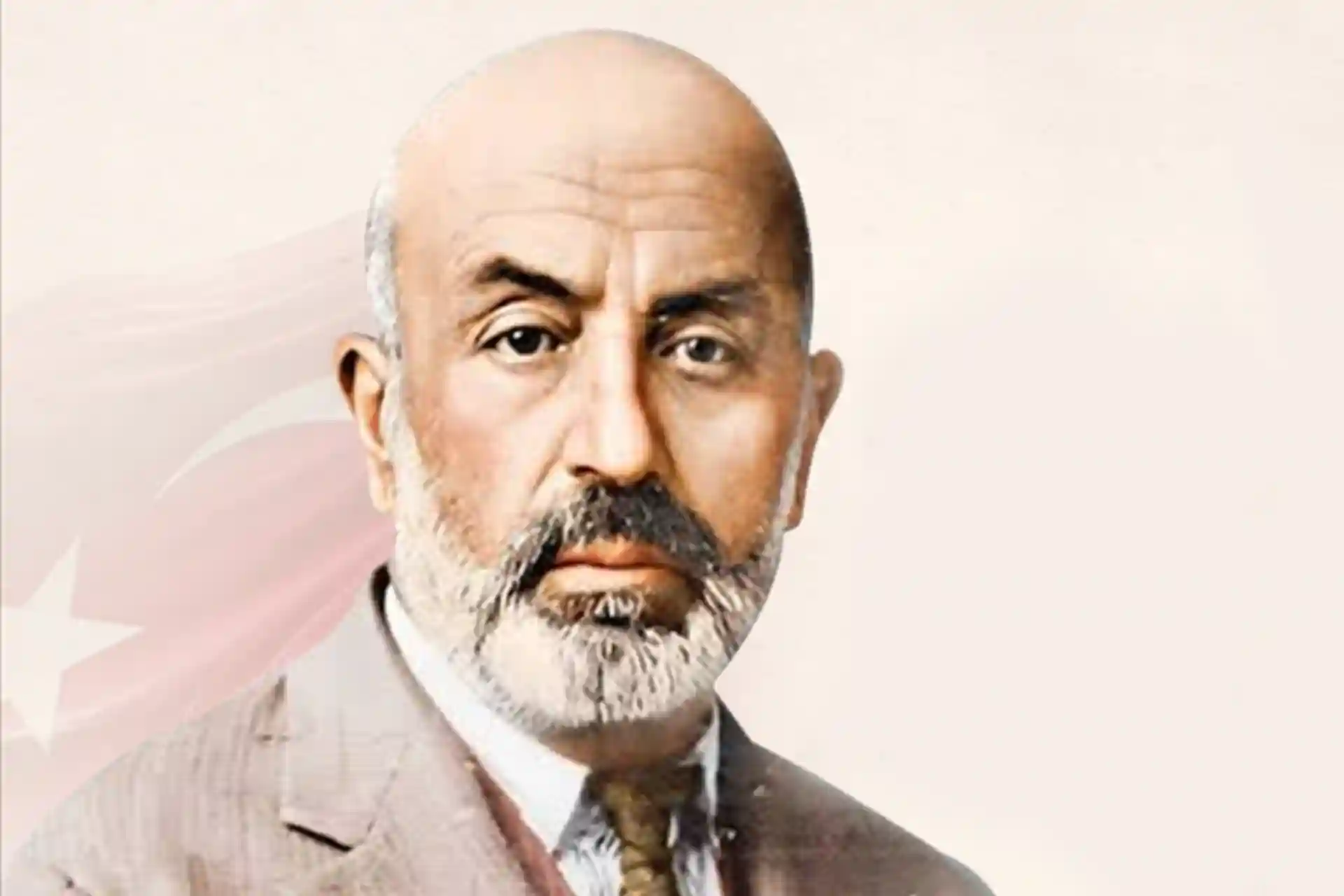13.03.2025 23:20
1972
The Uzbek boy who wrote the Turkish national anthem
The "Independence March" is not just a march, but a story of the independence and freedom of a nation.
Today marks the 104th anniversary of the adoption of the national anthem, the "Independence March," which has become the Turkish people's epic of freedom.
The author of the "Independence March", which has inspired Turkic nations for centuries, is Mehmet Akif Ersoy, of Uzbek origin.
The text of the anthem was approved by the Turkish parliament - the Grand National Assembly - on March 12, 1921.
The anthem also has an interesting history.
"Independence March" was written at a time when Turkey was going through dangerous times.
The Turkish Grand National Assembly opened on April 23, 1920. By the summer of 1920, a large part of the country had been occupied by invaders. Work was underway in Ankara to build a regular army.
The country, which had been considered a powerful country in the world for centuries, was in danger of disintegration when foreign tyrants set foot on it.
Turkish patriots, on the other hand, were leading a national liberation movement.
In such a dangerous period, the Majlis government, while building a new army, is also trying to use factors that support this army and give it moral strength.
The media calls on the people to resist the invaders, to unite, and not to be afraid. A large part of newspapers and magazines are purchased by the government and directed to the fronts. Rallies are organized, sermons are delivered in mosques. And the Independence March is also believed to raise the morale of the people and the army and increase their fighting spirit.
The Turkish Ministry of Education announces a competition among poets for the text of the national anthem.
The then Minister of Education, Riza Nur, wrote in his memoirs that the marching competition was his initiative:
"The days of the great revolution and war. At such times, nations create their best national marches. I have announced that I will award a prize of five hundred liras to those who write the text and music for such a national march."
Thus, a competition for the poetry and music for the Independence March was announced in newspapers. The competition deadline was set for December 23, 1920.
The poet who refused the award
After December 23, 1920, the Ministry of Education reviewed the poems submitted for the competition, but none were found worthy of becoming the Independence March.
Minister Hamdullah Subhiy knows that Mehmet Akif, a famous poet of the time, did not participate in the competition. The reason is very interesting: the poet did not participate in the competition because a prize was awarded for the march.
Sources cite the nationalist poet as saying, "What kind of poet have I become if I receive an award for a poem I wrote as a symbol of love for my nation?! The national anthem is not for sale!"
Minister Hamdullah Subhi personally wrote a letter to the poet in February 1921, asking him to resolve the issue of the award properly and to participate in the competition.
Thus, the "Independence March" was created, which served to unite a multi-million nation under a single flag. The anthem, consisting of ten quatrains (counts) and 41 verses, contains the following lines:
My soul is divine from you, this is what I want:
Do not touch the chest of my temple.
These prayers are the basis of religion.
Eternally, my groaning over my country.
Meaning:
My soul's only wish from You, my God, is this,
Let no unholy thing touch my temple,
These are the adhans whose testimony is the foundation of religion,
I wish my voice could echo forever above my homeland.
At that time, poet Mehmet Akif Ersoy said, "May God not allow this nation to write a second anthem of independence!" and wished for the country's freedom to last forever.
Has Uzbek blood
The father of the poet and politician Mehmet Akif Ersoy (1873–1936), Mehmet Tohir, was a teacher of Albanian origin, and his mother, Omina Sharifa Khanum, was the daughter of Uzbeks from Bukhara.
The thinker Sezai Karakoç was referring to this same historical truth when he said, "My father's people are Rumi, my mother's people are Bukhara, and my birthplace is Fatih, the Conqueror of Istanbul."
Mehmet Akif Ersoy went down in history not only as a talented poet, a prominent figure, a learned teacher, a talented preacher, and a skilled translator of the Holy Quran.
"He taught at the Faculty of Literature as a professor of philosophy. He was fluent in Arabic, Persian, and French, and was also a scholar who thoroughly mastered Islamic sciences. He spread the light of enlightenment to the people through his articles published in the journal "Sirati Mustaqim."
"It is said that when he traveled throughout Anatolia, he had only 36 kurus left in his wallet. He was a true man who endured such trials," President Recep Tayyip Erdogan said in a statement describing the poet.
Pride of ownership of the "Independence March"
Mehmet Akif Ersoy is still among the poets whose work is widely studied in Turkey today, and whose thoughts are often mentioned by political, intellectual, and creative people.
"When a nation is united and united, no invader can conquer it," the poet said almost a century ago.
It has been more than a century since the Turkish national anthem was written. Over the past century, the country has seen many changes in state and government, but the Independence March still resonates as a symbol of national pride.
Turkish President Recep Tayyip Erdogan has admitted, "As a nation, we are proud and grateful to have a poem like the Independence March."
According to the Turkish leader, the Independence March will help to recognize and unite Turkish compatriots who still hold the flag in their hands and repeat the takbir in their hearts.
The owner prepared Hayat.

